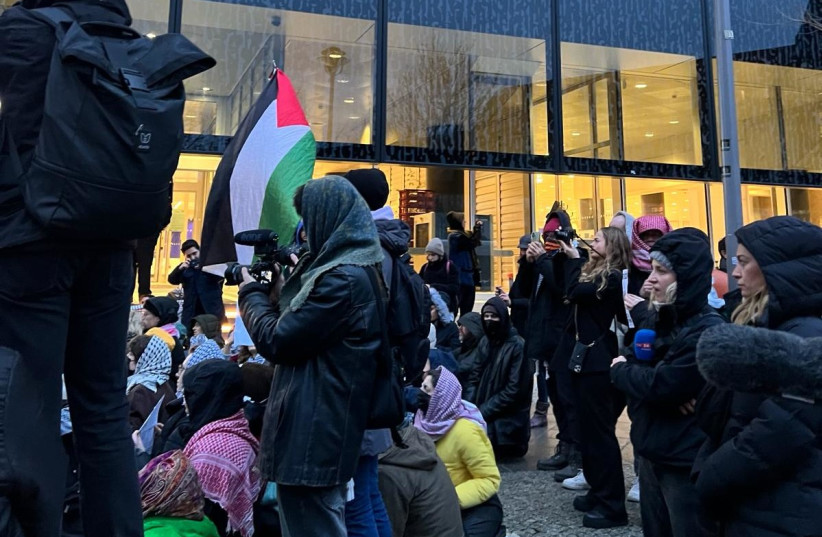Berlin Police Chief Barbara Slowik has issued a warning to Jews and LGBTQ+ individuals to exercise caution in certain areas of the German capital amid rising antisemitism and hate crimes. Speaking to the press, Slowik emphasized the need for vigilance in the wake of recent events, particularly following the attack by the Palestinian terrorist group Hamas on Israel on October 7, 2023.
"There are no so-called no-go areas, meaning areas that are too dangerous to enter," Slowik stated, as reported by Die Zeit. "However, there are areas, and we must be honest at this stage, where I would advise people who wear a kippah or are openly homosexual or lesbians to be more attentive," she added, emphasizing the importance of caution in public spaces.
Highlighting the tensions in certain neighborhoods, Slowik explained, "Unfortunately, there are certain neighborhoods where predominantly Arab-descended people live, who also have sympathies for terrorist groups," and where "open anti-Semitism is articulated there against people of Jewish faith and origin," according to Der Standard - Archäologie. She stressed that her intention was not to stigmatize any community, stating, "I do not want to 'defame' any particular group of people as perpetrators," as reported by Süddeutsche Zeitung.
While the police chief did not specify the exact areas of concern, she linked the increase in antisemitic incidents to the ongoing conflict in the Middle East. "This understandably increases the fear within the community of becoming a target of an attack," Slowik noted, adding, "That fear and concern remain, I can understand," as reported by Die Zeit.
Since October 7, 2023, the Berlin police have initiated over 6,200 investigations related to antisemitism and incitement to hatred, according to Süddeutsche Zeitung. A significant portion of these cases involves hate postings on the internet, property damage, and propaganda offenses. "Of the 1,300 investigations regarding violent crimes, it is mostly about attacks or resistance against police officers at demonstrations," Slowik indicated.

Despite the rise in reported incidents, direct violent crimes against Jewish individuals remain relatively low. "Fortunately, the violent crimes against Jewish people are low, but without question, every act is one too many," Slowik emphasized, as noted by Die Zeit. She acknowledged the heightened sense of insecurity within the Jewish-Israeli community, stating, "People from the Jewish-Israeli community in Berlin perceive the total number of anti-Semitic crimes, which raises their fear of becoming targets of attacks," according to Der Standard - Archäologie.
Remain vigilant
The police chief urged all residents to remain vigilant and report any suspicious activities. "That fear and concern remain, I can understand," she reiterated, highlighting the importance of addressing the community's anxieties. Slowik's warnings reflect broader concerns over rising antisemitism and the need for heightened awareness in specific areas of Berlin.
In her remarks, Slowik also underscored the complexity of the situation, acknowledging the diverse backgrounds of the city's residents. "I do not want to 'defame' any particular group of people as perpetrators," she stated, emphasizing the importance of not generalizing or assigning blame to entire communities.
